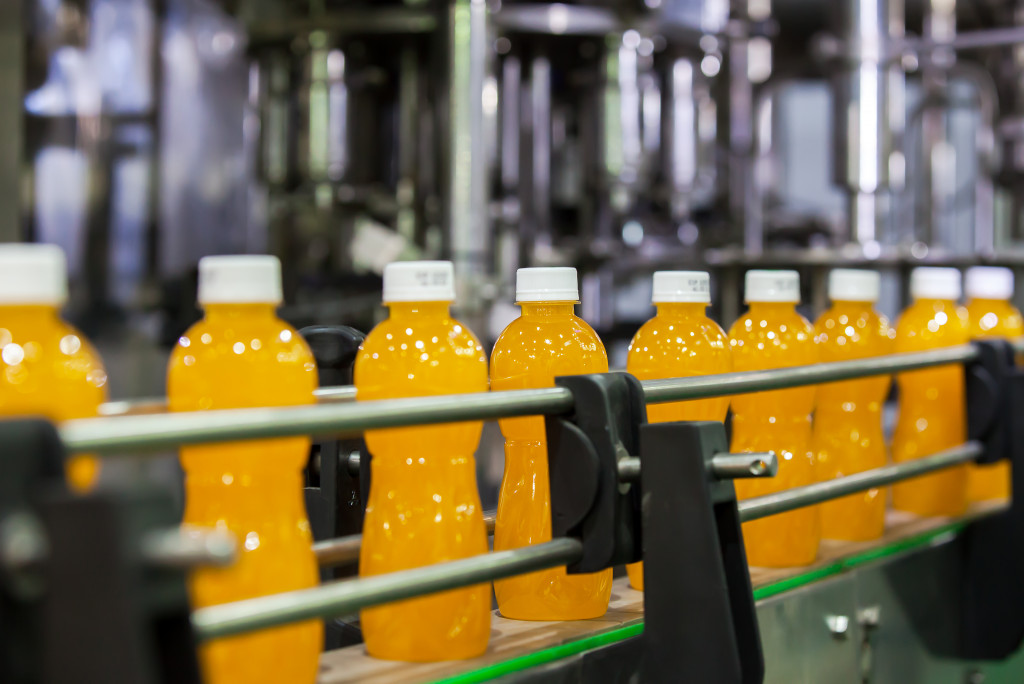- Beverage businesses can use waste management software to track and reduce waste while meeting regulatory standards.
- Smart bins and reverse vending machines, powered by sensor technology, optimize waste collection and encourage recycling.
- Education programs can raise customer awareness about sustainability and proper waste management practices.
- Renewable energy solutions and water conservation techniques can further reduce the environmental impact of beverage enterprises.
Sustainability is a critical consideration for businesses today, and the beverage industry is no exception. With beverage enterprises generating a considerable amount of waste daily, it’s essential to find ways to minimize waste production and manage it more effectively.
Fortunately, with today’s technological advancements, it’s easier than ever to improve sustainable operations. This article explores technology solutions available to beverage enterprises to minimize waste and contribute to a more sustainable future.

Waste Management Software
One approach to minimizing waste in beverage enterprises is leveraging waste management software. Waste management software optimizes waste handling by streamlining workflow processes and reducing time and costs associated with waste management. It empowers businesses to track waste production, recycling, and disposal, provide real-time data, and identify opportunities for waste reduction. Using waste management software, enterprises can reduce waste and improve their environmental footprints.
Regulatory Standards
Waste management software also enables businesses to comply with regulatory standards and meet sustainability goals. It offers features to help businesses identify areas of improvement, track progress towards their environmental objectives, and reduce carbon emissions. This level of transparency gives enterprises the tools they need to make informed decisions about how best to manage their waste.
Production Equipment
Businesses can also integrate the software into production equipment. They can use the software to monitor their energy consumption and adjust production processes accordingly. This ensures that resources are used more efficiently, reducing waste and improving efficiency. For instance, to prevent liquids from spilling in a beverage production company while filling up bottles, the business can integrate a reliable benchtop filling machine into the system. The system can then be adjusted to ensure the bottles are filled with the right amount of liquid, thereby reducing waste.
Smart Bins
Smart bins use sensor technology to collect data on waste levels in real time, ensuring timely pick-up and disposal. These bins can operate indoors or outdoors and can be monitored remotely via a mobile app.
Real-Time Data
The real-time data collected allows enterprises to optimize waste collection frequencies, avoid overflowing the bins, and estimate waste production. Beverage enterprises can minimize waste production and improve sustainability by intelligently optimizing waste collection.
Recycling Materials
Smart bins can also be used to collect recycling and other materials. Beverage enterprises can reduce their overall environmental impact by using sensor technology to monitor waste levels in recycling and regular trash bins.
Reverse Vending Machines
Reverse vending machines accept empty bottles and cans, rewarding customers with a financial incentive. These machines help to incentivize recycling. Enterprises can benefit from using reverse vending machines as they can drive higher recycling rates, reduce waste production, and provide an additional source of revenue.
Motivated to Recycle
Customers are also motivated to recycle, hence contributing to environmental sustainability. Reverse vending machines are a great way to minimize waste in the beverage industry. They should be considered an essential tool for companies looking to reduce their environmental footprint.
Education Programs
Education programs can help educate customers on sustainability and recycling best practices. Companies can partner with local schools or organizations to provide resources like educational materials, presentation boards, or workshops that encourage proper waste management practices. These programs can help customers become more aware of the importance of sustainability and recycling and learn how to properly handle their waste.
Reduce Environmental Impact
By leveraging technology, beverage enterprises can reduce their environmental impact while improving efficiency and cutting costs. Waste management software, smart bins, reverse vending machines, and education programs are all great tools for businesses looking to minimize waste production and contribute to a more sustainable future.

Renewable Energy Solutions
Beverage enterprises can leverage renewable energy solutions like wind turbines, solar panels, or biogas generators. By using renewable energy solutions, enterprises reduce carbon emissions and become more self-sufficient financially. Renewable energy could offset normal energy costs while reducing the environmental impact of business operations. Additionally, businesses can benefit from utilizing energy storage systems to manage their energy load and minimize waste.
Water Conservation
Another way beverage enterprises can reduce waste is through water conservation. Several techniques, such as lowering laundry loads, using drip-irrigation systems for landscaping, or installing low-flow fixtures in restrooms, are effective methods for conserving water resources. By using these approaches, businesses can reduce their water and be better stewards of the environment.
The beverage industry’s primary objective should be to minimize waste production while maintaining profitability. By leveraging sustainable solutions, beverage enterprises can achieve these goals simultaneously. Not only do these solutions minimize waste, but they also reduce costs while increasing efficiency. Beverage enterprises that embrace technology for business sustainability today will realize many rewards, including a more robust bottom line, a healthier environment, and happier customers.

